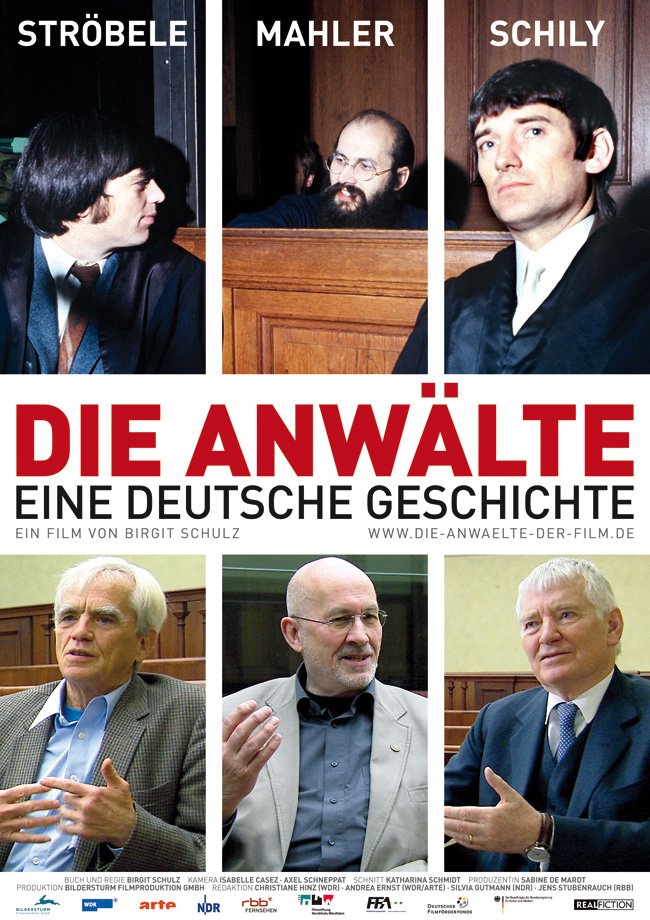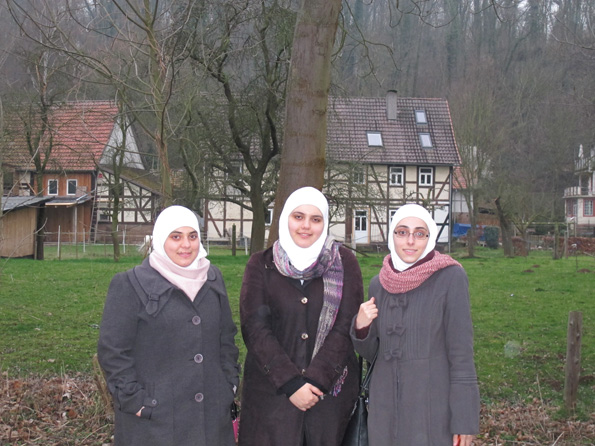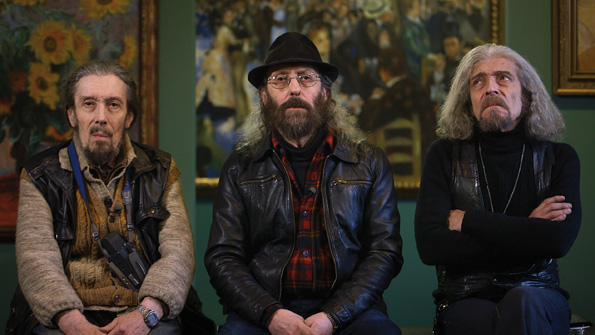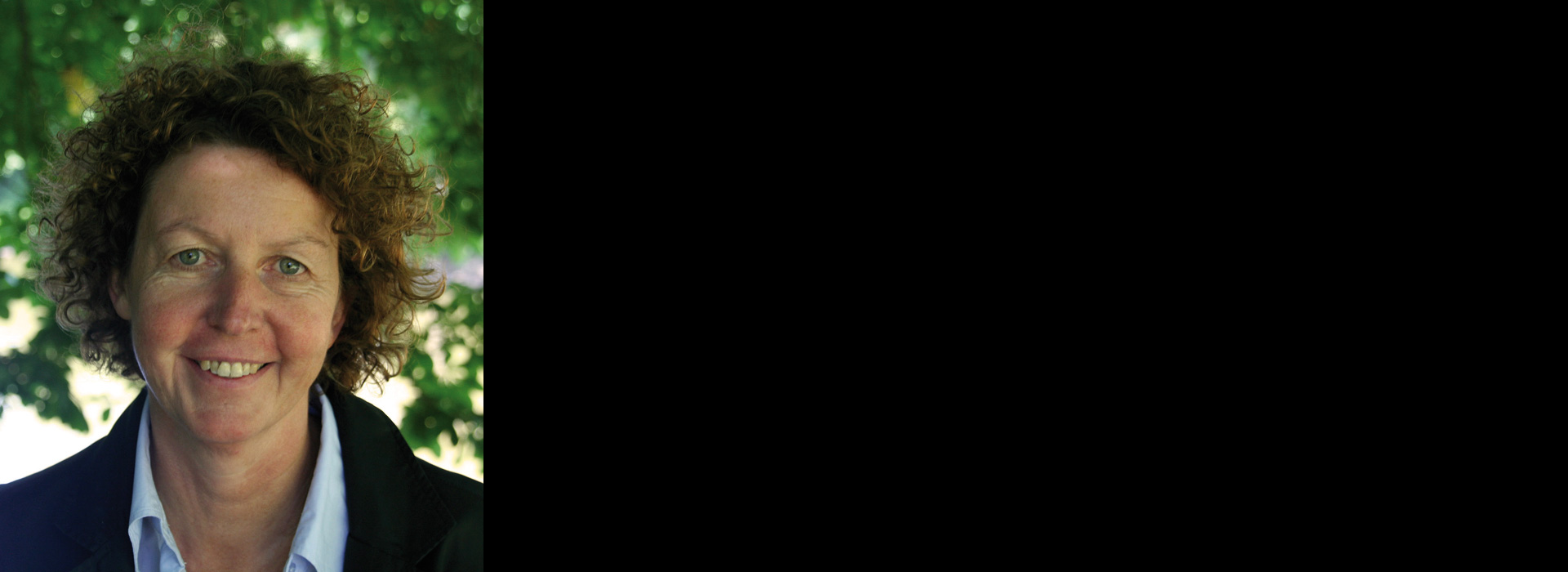A PORTRAIT OF BILDERSTURM FILMPRODUKTION
Birgit Schulz (photo © Bildersturm Filmproduktion)“Working at the interface between culture and politics is something that’s a common thread running through most of our productions,” says documentary producer Birgit Schulz of Cologne-based Bildersturm Filmproduktion, which she founded in 1993.
“We invariably look for cultural subjects which also have a socio-political significance or vice versa,” she explains, pointing to the example of THE GREENS AND THE POWER to illustrate her point.
“This film about the Green Party is a reflection on how culture in the Federal Republic developed and such a culture of debate was made possible, as well as showing how the party came to an end of an era when it held its party conference in 2012 to select the candidates for the Bundestag elections.”

Moreover, the company’s most successful production in its more than two decades of operations, THE LAWYERS — A GERMAN STORY, is, “naturally, on one level, a portrait of the three lawyers Otto Schily, Horst Mahler and Hans-Christian Ströbele, but it is also about the RAF [left-wing terrorist organization] and the associated developments up to the present day — as well as being a story about a friendship between men.”
“We like to have this kind of range in our films,” Schulz adds and points to another production, THE PROMISED LAND, about the international image of Germany. “70 years ago, in 1945, Germany was the most hated country on the planet, and now it is one of the most popular countries in the world. So, this gave us an opportunity to ask questions about the past.”
Since 1993, Bildersturm has produced more than 50 documentaries for theatrical release or for public broadcasters at home and abroad, and many of the films have been subsequently sold to TV stations around the globe from YLE through NHK to Canal+ and Aljazeera. Each year sees the company producing around eight films.

Scene from THE PROMISED LAND (photo © Bildersturm Filmproduktion)
Over the past two decades, Schulz and her team have worked on an eclectic mix of subjects: from three master forgers from Berlin’s Neukölln district (THE LENINGRAD COWBOYS OF THE ART WORLD), through the relationship between religion and sexuality (FAITH LOVE DESIRE — WORLD RELIGIONS AND SEXUALITY), and Rio de Janeiro’s legendary Maracana football stadium (TEMPLE OF EMOTIONS), to portraits of the British sculptor Richard Deacon (RICHARD DEACON — IN BETWEEN), the psychoanalyst Margarete Mitscherlich (PRESENCE OF MIND), and the German industrialist Robert Bosch (ROBERT BOSCH — LEGACY OF AN INDUSTRIAL PIONEER), as well the psychology of psychopaths (ON THE TRAIL OF EVIL) and life for Germany’s first Turkish guest workers (FORD FATHERS — GUESTS IN A FOREIGN COUNTRY).
Bildersturm’s productions have also gathered their fair share of awards and distinctions: for example, THE LAWYERS – A GERMAN STORY was awarded the PHOENIX Documentary Prize in 2010 and then picked up two Adolf Grimme Awards a year later for Schulz’s script and direction and for the editing by Katharina Schmidt.
In 2010, Joachim Vollenschier received the Helmut Schmidt Journalist Prize for his documentary CHICKEN FOR AFRICA in recognition of “outstanding work in the field of economic and consumer journalism”, while author Peter Scharf was presented with the PUK Journalist Prize for his TV documentary SCHOCKBILDER – DER MANN, DER MIT WERBUNG POLITIK MACHT about the controversial photographer Oliviero Toscani in 2011.
The PUK Journalist Prize also went to Schulz and co-director Gerhard Schick for their film ALLAH IN EHRENFELD about the building of Germany’s biggest mosque near the center of Cologne.
“We often have subjects which just fit what international partners are looking for,” Schulz says. “At this year’s Hot Docs Forum in Toronto, for example, we pitched a project — PLAYING GOD — about the Washington lawyer Ken Feinberg who makes compensation claims for the victims of major catastrophes.” The project — which is set to be directed by Karin Jurschick — “attracted such a high degree of interest in North America that we found partners in Canada and the United States before we had found any in Germany.”

Scene from THE LENINGRAD COWBOYS OF THE ART WORLD (photo © Bildersturm Filmproduktion)
Indeed, international partners are increasingly becoming a crucial and indispensable part of the formula when financing is being raised for new documentary projects.
“Relying on only one source of financing and one broadcaster isn’t sufficient anymore and the films we want to make can’t be financed only from within Germany,” Schulz explains. “We couldn’t operate without co-production, pre-sales or some other forms of participation.” Bildersturm’s international network was given an extra boost when Schulz took part in the MEDIA Programme’s EAVE training initiative for independent producers with the project ROUGH CUTS in 2006.
“We are still benefiting from the experience,” she recalls. “I had a very good trainer who made us really think about how we should organize the company to make it more efficient, to look at how the manpower and the daily routines are structured as well as recognizing the need to invest in better marketing to promote the company itself in order to raise its profile in the market.”
Apart from managing her company and serving as producer, Schulz has occasionally donned the director’s hat for some of the films developed at Bildersturm. These have included the TV documentaries KÖNIGSKINDER — ROMY SCHNEIDER AND ELISABETH VON ÖSTERREICH, ROBERT BOSCH — LEGACY OF AN INDUSTRIAL PIONEER, A RIGHT TO LIVE — AIDS-MEDIKAMENTE FÜR MILLIONEN, and ALLAH IN EHRENFELD through to the feature documentary THE LAWYERS — A GERMAN STORY.
Coming from a background as a photographer, Schulz says that she was originally moved to set up her own production company “because I wanted to have control over my own work and not be dependent on other producers. I have always liked directing, but have gradually limited this side of my work because of my obligations as producer,” she explains.
However, her time in the director’s chair has proven to be particularly beneficial when working with her directors and writers on projects. “I can be a really good corrective factor for the authors when we are talking about a film’s dramaturgy. The discussions we have at the different stages of development are certainly quite different from in other companies where the producers have never made a film as a director. I think I have a greater understanding for the directors and can sense where the problems might be.”
Looking back at how the documentary scene has evolved over the past two decades, Schulz notes that “there are infinitely more people making documentaries than 20 years ago. There are lots of gifted people out there, and a great diversity of formats as well as many more training opportunities. That’s one side of the developments. The other side is that the budgets are shrinking but there are more directors and more ideas. I think we are going to have dramatic times ahead when there will be a real battle over the distribution of the available resources. Nowadays, everything takes much longer before you get a decision,” she adds. “And when a broadcaster says ‘Yes’, that isn’t the end of the financing battle because you will have to find another one to two partners to close the financing.”
The intensive supervision of each individual project in an increasingly complex film and television landscape is particularly important at Bildersturm and can only function thanks to excellent teamwork, Birgit Schulz stresses. A tailor-made strategy is developed for each film – from the first idea through to its presentation at festivals – with her closest staff members, the producers Monika Mack and Rolf Bremenkamp.
Meanwhile, this autumn will see Bildersturm giving one of its projects the chance of a theatrical release in German cinemas after it was originally conceived only for airing on television. A premiere is planned on November 1 for her latest documentary, INTERVIEW WITH DEATH... JÜRGEN DOMIAN BETWEEN NIGHT AND DAY, about how Germany’s most popular late-night phone-in host Jürgen Domian invites listeners to speak about their personal experiences with death.
Tickets for the screening in Essen’s Lichtburg Cinema, Germany’s largest cinema with seating for over 1,300 spectators, was sold out weeks before the premiere evening.
Martin Blaney

